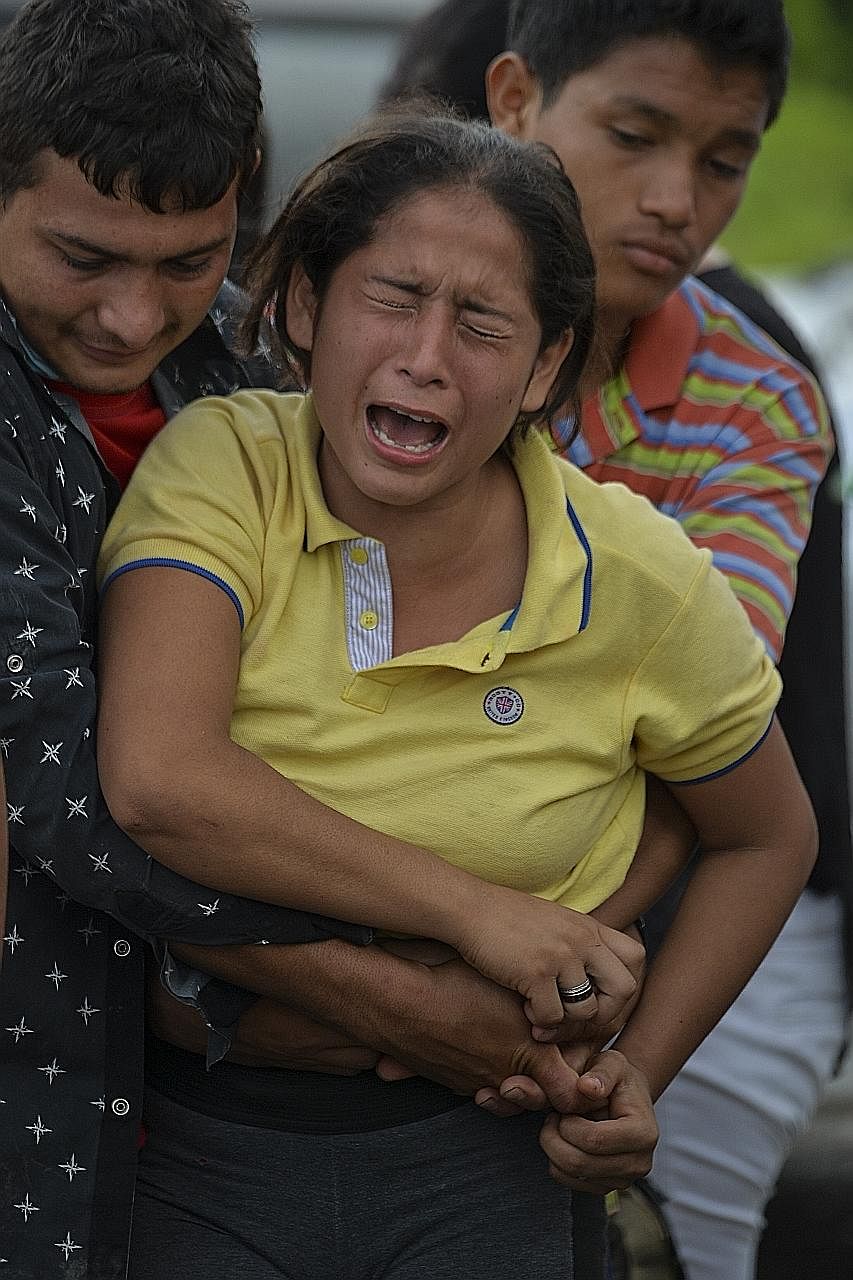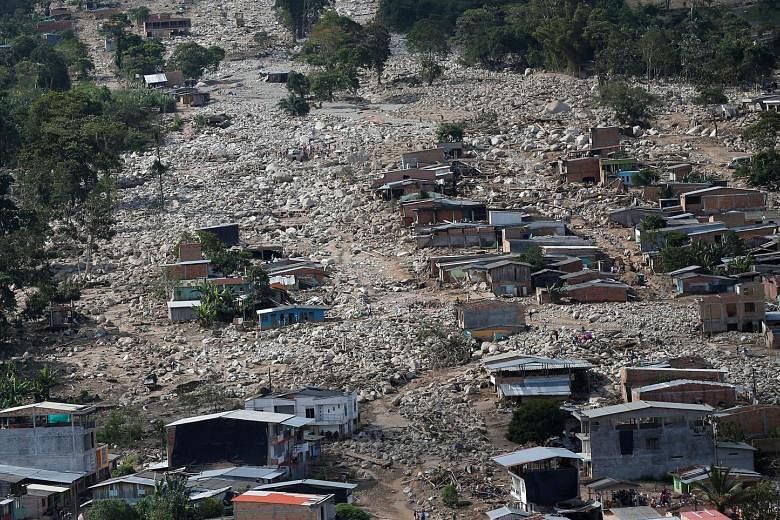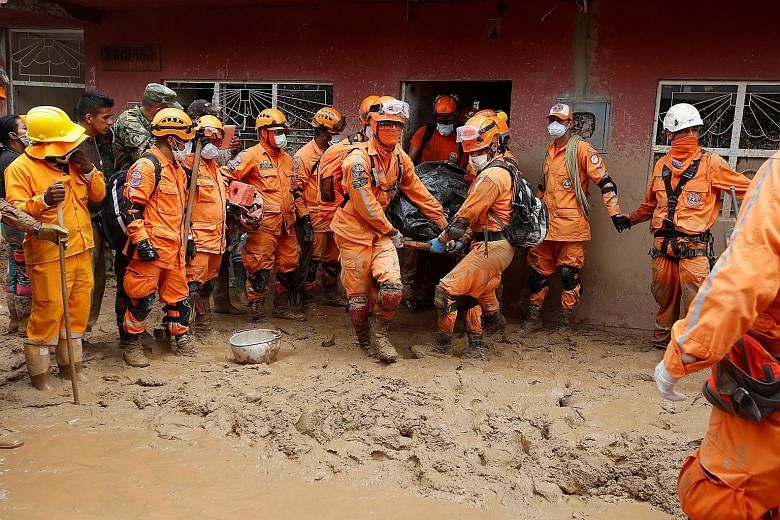MOCOA (Colombia) • Survivors told of clinging onto roofs or trees as a sea of mud, boulders and debris engulfed their village. Some watched helplessly as their children and relatives were swept away.
Debris was everywhere in the remote Amazon town of Mocoa in Colombia on Monday, three days after devastating mudslides. Buried cars, uprooted trees, toys and shoes were sticking out of the mud.
Rescuers were clawing through the mud and timber searching for more survivors from the disaster last Friday that killed up to 273 people, including 43 children. Heavy rain had caused the town's three main rivers to overflow, spewing earth, rocks and debris over the area. The toll is expected to rise, with some 200 people still missing.
Among the survivors was Ms Ercy Lopez, 39, who was left hanging on a tree after her home was swept away. Lying on a mattress in a shelter for survivors, she said her 22-year-old daughter Diana Vanesa was still missing. "The hopes of finding her alive are slim now," she said.
Survivors gathered at the local hospital and cemetery to search for family members and friends.

Ms Yulieth Rosero, 23, had just buried her sister, but was hoping to find her seven-year-old nephew Juan David Rueda. "I found his little brother, William. He's alive. He's in shock, injured and has no clothes, but he's okay," she said.
Hundreds of rescuers were working at the scene of the disaster, using mechanical diggers in the search.
Locals said it was never safe to live so close to the town's three main rivers that often overflowed after days of torrential rain.
Mr Wilson Chilito, 22, said he climbed onto the roof of a house where he watched "people, fridges and houses" being swept away. He lost his sister, mother-in-law and at least two other relatives.
"This was foreseen for a long time," he said.
Mr Carlos Acosta, 25, survived by clinging to a tree branch.
"I was dying due to a lack of air - so what did I do? I stuck my finger in my mouth and vomited a lot of mud," he said. "I sneezed out mud until I could breathe again."
He could not save his three-year- old son Camilo. The two were swept away together, but Mr Acosta was knocked unconscious and when he woke up, the child was gone.
Residents have begun burying loved ones as the identified bodies were returned.
Desperate families queued for blocks in the heat to search for relatives at a morgue. Bodies wrapped in sheets lay on the floor as officials sought to bury them as soon as possible to avoid the spread of disease. One mass funeral has already been held at a cemetery, where workers toiled to dig enough holes for the piles of coffins.
President Juan Manuel Santos revisited the scene on Monday, staying at a nearby military base to continue coordinating the disaster response. He declared an economic emergency to free up relief funds, amplifying the public health and safety emergency declared earlier.
He said the mudslides destroyed an aqueduct and knocked out power to much of the area, and four emergency water treatment plants will be set up to curb the spread of disease.
AGENCE FRANCE-PRESSE, REUTERS


